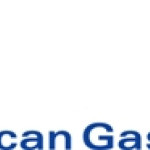- Industry: Energy
- Number of terms: 18218
- Number of blossaries: 1
- Company Profile:
The American Gas Association represents local energy companies that deliver natural gas throughout the United States.
The term "modified fixed variable rate design" refers to a method of determining demand and commodity rates whereby all fixed costs except equity return and related taxes are classified to the demand component.
Industry:Energy
A device for measuring utility service consumption within individual dwelling units where the utility service is supplied through a master meter.
Industry:Energy
A method to determine the cost of common equity component of return based on cost of the fixed components, debt and preferred stock.
Industry:Energy
A tariff provision applicable to interruptible transportation which provides that a shipper may temporarily lose its ability to receive its full contract volumes if it ships at a lower volume. Under the no-bump rule, a shipper currently flowing gas cannot be bumped (lose capacity) because a shipper with a higher priority in the interruptible transportation queue decides to increase its receipt of gas within its transportation contract.
Industry:Energy
Arrangement for lowering the temperature of water by evaporative cooling of the water in contact with outside air; the water to be cooled is sprayed by nozzles into the space above a body of previously cooled water and allowed to fall into it.
Industry:Energy
In refrigeration, the quantity of refrigerant in a system; also, to put in the refrigerant charge.
Industry:Energy
Temporarily storing a shipper's excess gas so that shipper doesn't have to sell it at depressed prices.
Industry:Energy
The layout of a gas distribution system in which pipes are laid in both directions in the streets and frequently connected at intersections. Also, a series of equally spaced parallel bars held together by equally spaced crosspieces; a screen.
Industry:Energy
The term "rate design" refers to the method of classifying fixed and variable costs between demand and commodity components. Examples of different rate designs are single rate (100% commodity or volumetric), two-part rates (demand and commodity rates), three-part rates (two demand and one commodity rate) and multiple rates (zone rates).
Industry:Energy
